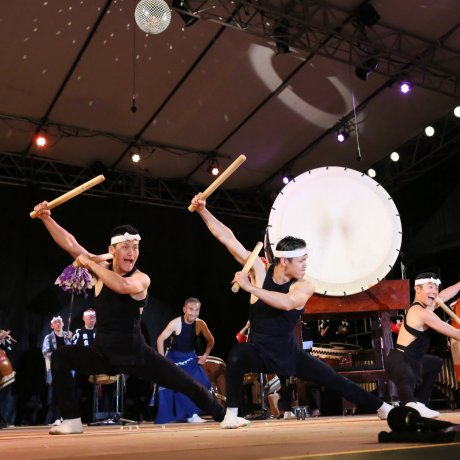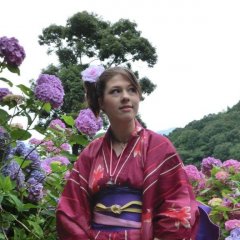Life amid COVID-19 has introduced many changes to the life of the average person. Changes that travelers are no stranger to as well.
While we're seeing incentives like Go to Travel, Go to Eat, and other incentive campaigns it can feel as though things are back to normal.
But remember, coronavirus isn't defeated just yet. This is the same for Japan, which drew original acclaim for its approach to its three C's approach: closed spaces, crowded places, and close-contact settings.
Find out some of the ways Japan is trying to keep the country moving forward toward a hopeful recovery.
Hand sanitizer

Nowadays, it’s more uncommon to see a business or restaurant that doesn’t have hand sanitizer at its entrance.
Whether you’re entering a fast food place like KFC or an upscale Roppongi fine-dining restaurant, you’re expected to use the sanitizer provided to ensure your safety and the health of those you come into contact with. While not all establishments will directly ask you to use the sanitizer, some will politely insist. Increasingly, touchless sensor-based devices are being used to further minimise transmission of unwanted germs.
Hand sanitizer is part of a wider handwashing strategy that Japan also promotes. Note that if using public restrooms, you may find hand dryers have been switched off to further minimise potential transmission — it helps to carry a hand towel just in case and always recommended to wash again after returning home.
Masks

If you thought Japan's pre-COVID-9 mask culture was interesting, you haven’t seen anything yet. Even in the swelter of summer, most people on the train can be seen wearing a disposable or, the increasingly more common, reusable cloth mask. In fact, you can be asked to leave from places like clinics if you decide to go mask-less.
There are even many signs on trains instructing people on how to wear one correctly, which means covering your mouth and nose.
Traditionally, it has been rare to wear masks in the warmer months, but with Japan known for its excruciatingly hot summers, more and more companies are quickly innovating and releasing new, lighter and more breathable masks — take Uniqlo's Airism range above, for example.
Social distancing

Two-meter rule
It can be tough to maintain that 2-meter social distance buffer in Japan—especially in trains, subways, and busy cities. But it’s still a great way to make sure you and those around you remain safe. In fact, many establishments are “closing” every other seat or table and asking patrons that aren’t in a group to respect social distancing.
Physical barriers
There are many cases of adjustable plastic shields being put in place between diners, like at the popular Ikebukuro ramen restaurant, Mutekiya. Of course, if you're dining together, you can ask for the staff to lower the shields for easier conversation.
Crowd control
Staggered commuting / off-peak travel: Many companies are trying to continue support for remote work situations, as well as encourage staff to avoid rush hour/peak travel times. This also relates to government requests for people to try to limit non-essential outings.
People traffic flow: Many stores have set up dedicated entrances and exits to help minimise interactions between customers and reduce the risk of infection. Many smaller establishments are putting limits on the maximum people allowed inside at a single time, and asking others to wait outside.
Online only: If there's no crowd in the first place, that's partly thanks to the huge shift towards online shopping — which Japan has seen just like the rest of the world. In some cases, this has allowed certain events to go online via a streaming, or virtual experience, format. In other cases, online booking has been seen as a crucial way for the food industry to keep going — with both restaurants offering takeaway/deliveries but also food producers increasingly ship surplus product directly to consumers.


Free Virtual Event: Udon Tour in Kagawa Prefecture ...
Evento pasadoJapan Travel teams up with the Savor Japan project to help you experience Kagawa prefecture's most famous food. Join expert..

A-Nation Online 2020
Evento pasadoCoronavirus may have spoiled many plans this year but this is one event that you won't have to miss!

Tokyo Game Show 2025
Experience one of the biggest annual video game trade shows in the world.
Contactless thermometers

Many theme parks like Yomiuriland, Sanrio Puroland, and even Disneyland insist on taking your temperature before you can enter. Clinics, hotels, and restaurants are also on board. They’ll typically use a contactless infrared thermometer placed about 2-cm from your forehead. This allows them to make sure you’re feeling well enough and protect other guests.
But regular businesses are doing the same, so don't be surprised if someone points a thermometer your way.
Ventilation

It’s not uncommon to see windows open a bit on trains during summer. But this serves an additional benefit of fresh airflow. You might experience riding a train with the AC blowing and the windows open—the same can be true of restaurants and shops.
Public Signage

Tokyo started an incentive for restaurants, museums, karaoke bars, and other establishments to adhere to new cleanliness rules. Businesses that strictly follow a checklist can earn and display a seal of cleanliness (kansen bōshi tettei sengen, 感染防止徹底宣言). This shows that they’ve gone through exceptional cleaning routines and can give additional peace of mind to visitors and customers.
There is a plethora of new signage in the age of coronavirus. While most of these signs are in Japanese only, some are adopting a more international approach and including English, Chinese, and Korean as well. But with clear images, you'll usually be able to follow the advice posted.
The Japanese Ministry of Health, Labour, and Welfare has even made a contact app, COCOA. It tracks other people with the app that you happen to pass and then later alerts you should one of them test positive for coronavirus. There were initially some complaints of privacy so the app has yet to see the download numbers they hoped to achieve. The app is also available in English.

What are some other ways that you’ve seen businesses protecting guests? And what other methods are you practising for yourself? Let’s all stay healthy so that life can return to normal.





























